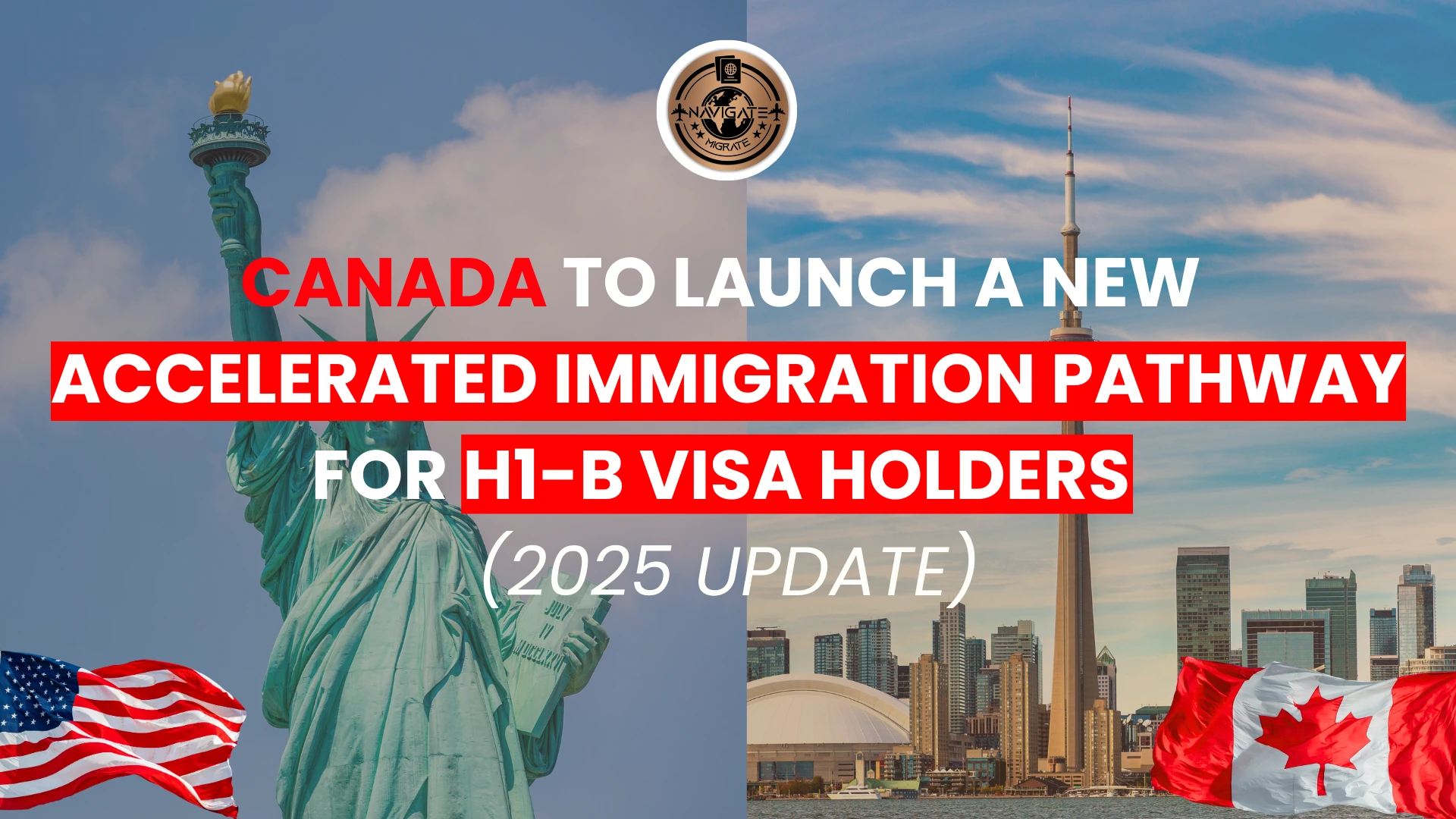

Canada is getting ready to launch a new, faster immigration pathway for H1-B visa holders. This change is a major step in Canada’s approach to attracting global talent. The new program is designed to help skilled workers, especially those facing long waits for U.S. visas, move to Canada more quickly and with greater certainty.
As the United States makes it harder and more expensive to get H1-B visas, Canada is presenting itself as a stable and forward-looking option. It offers professionals a clear path to permanent residency, career growth, and a safe place for their families—and with guidance from Skilled Immigration Consultants for Canada, applicants can navigate the process smoothly and confidently.
The federal government has announced that a faster immigration pathway for H1-B visa holders will start soon. This program is part of Canada’s plan to address worker shortages in fields like technology, engineering, healthcare, and advanced research.
Key Highlights Announced So Far
This new pathway supports Canada’s larger goal to attract global talent and grow its innovation economy, especially in areas where there are not enough skilled workers to meet demand.
For years, many tech and STEM professionals in the U.S. have faced:
Canada is taking this chance to show it is a strong option for skilled workers. It offers a clear immigration path for those ready to move and make a difference.
This move supports Canada’s goals in:
In 2023, Canada tested its attractiveness to H1-B workers through an open work permit program for U.S.-based professionals.
Results Were Immediate and Overwhelming
The new accelerated immigration pathway for H1-B visa holders seems to build on this strong success. It will likely have a clearer structure and a long-term route to Canadian Permanent Residency.
Technology & AI Professionals
Roles such as software engineers, AI developers, machine learning experts, and cybersecurity professionals remain among the most in-demand across Canada.
STEM Researchers & Scientists
Canada is growing its institutes, research labs, and university programs, which match the skills of many H1-B professionals.
Engineers and Advanced Industry Specialists
Canada requires engineers in:
Professionals with Global Corporate Experience
Those working for multinational companies, many of which already have offices in Canada, may find it easier to transition and get hired quickly.
While Canada is working to bring in new skilled workers, many tech workers already in the country are becoming frustrated.
Why Canadian Tech Workers Are Concerned
Potential applicants may be worried that they could experience the same delays, including:
To make the new H1-B pathway a success, Canada will need to show professionals that the route to permanent residency is clear, fair, and always available
The upcoming pathway will likely offer:
However, Canada needs to balance bringing in new global talent with supporting the skilled workers who are already helping its economy.
Canada is positioning itself as a global hub for high-skilled immigration. The new H1-B pathway is part of a wider plan to:
The new accelerated immigration pathway for H1-B visa holders is a big opportunity for thousands of skilled professionals facing uncertainty in the U.S. It gives them a chance for stability, new opportunities, and a long-term home in a country that values their skills.
Once Canada shares the full program details, Navigate Migrate will offer step-by-step guidance to make sure applicants get expert help on their path to Canadian permanent residency.




